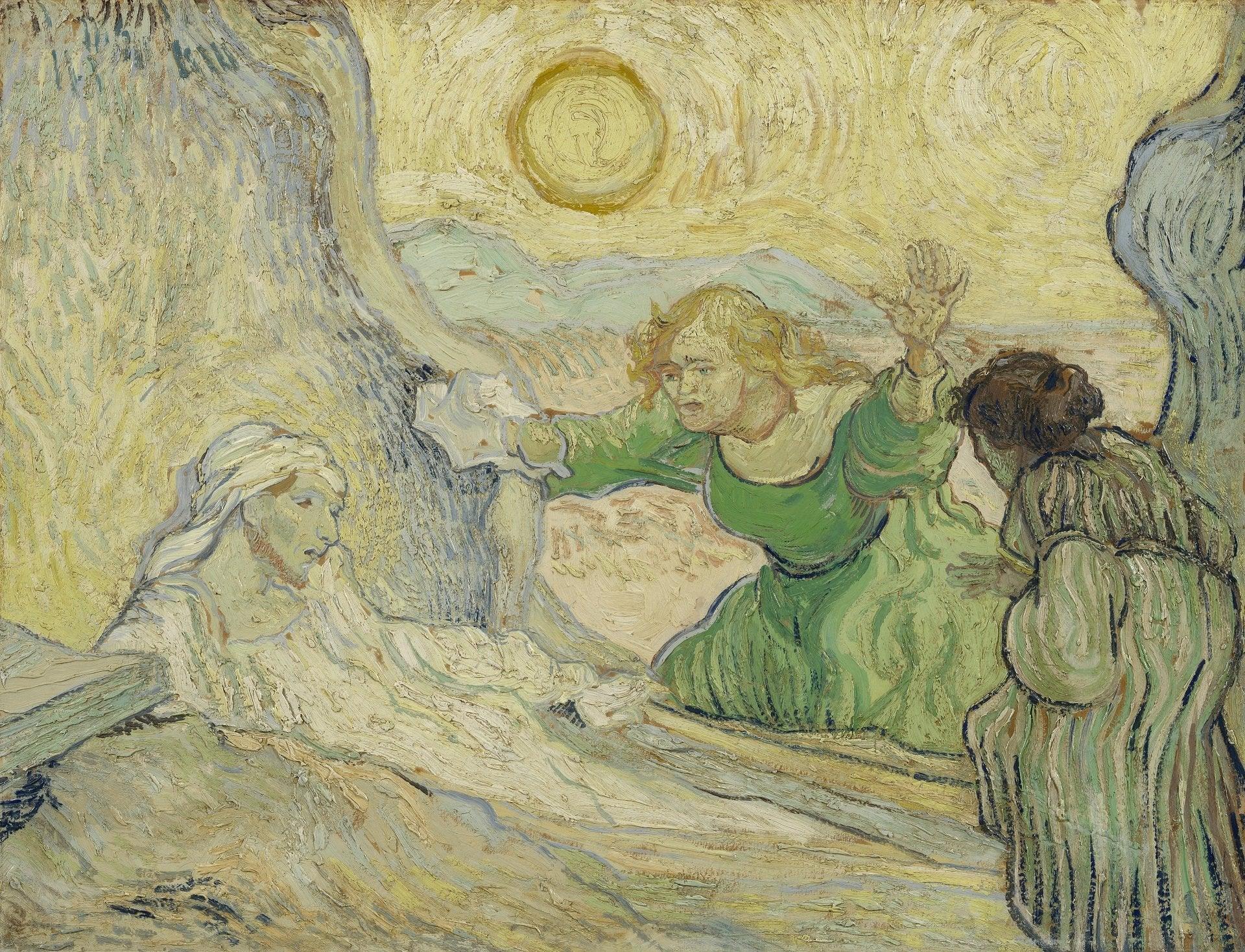Description
The Raising of Lazarus, after Rembrandt, is a masterpiece by the famous Dutch painter Vincent Van Gogh. This painting is a reinterpretation of Rembrandt's original work, depicting the miracle of the resurrection of Lazarus by Jesus.
Van Gogh, known for his Post-Impressionist style, uses a thick, vibrant brushwork technique to create a dynamic and emotional composition. The figure of Lazarus, emerging from the tomb, is the focal point of the painting, surrounded by a group of people who watch the miracle in awe and wonder.
The use of color in this painting is particularly remarkable. Van Gogh uses bright, warm tones to represent divine light illuminating the scene, while darker, earthier tones represent death and darkness.
The story behind this painting is fascinating. Van Gogh created this work while he was in the Saint-Paul-de-Mausole psychiatric hospital in France, where he was undergoing treatment for his mental problems. The painting was a way of expressing his faith and his hope in the afterlife.
Also, there are little-known aspects about this painting that make it even more interesting. For example, Van Gogh is believed to have used his own image as a model for the figure of Lazarus, suggesting that he identified with the biblical character who had been brought back to life.
In short, The Raising of Lazarus, after Rembrandt, is a stunning work of art that combines Van Gogh's Post-Impressionist technique with a powerful and moving Biblical story. This painting is a testament to the talent and creativity of one of the most influential artists in art history.

